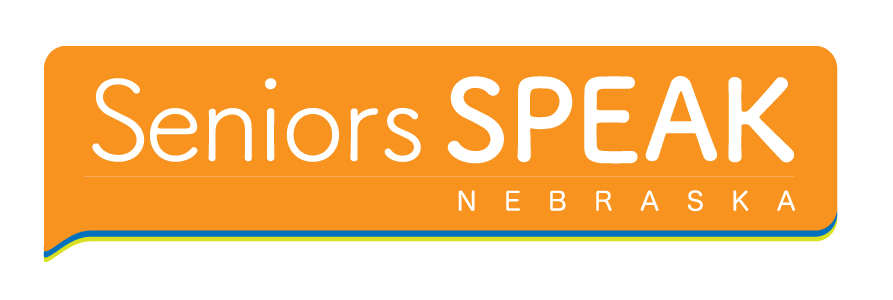
“I spent my whole life in a small town but when my local nursing home closed, I was forced to find a different care facility. It was really hard to leave my friends and community where I was born and raised.” —Alice, Wausa, NE
Ready or not, Nebraska, we’re getting older.
And when it comes to long-term care, our seniors are speaking. We all need to listen to what they have to say.
By 2030
the number of Nebraskans aged 65-74 will be nearly double what it was in 2010.
By 2050
the number of Nebraskans needing elder care will outnumber children needing daycare.
Share the Reality
Download the Seniors Speak fact sheet to share the reality Nebraska’s seniors are facing.
Economic Implications
Seniors, along with caregivers in skilled nursing and assisted living facilities, are part of what makes Nebraska’s economy grow and prosper. Nursing and assisted living facilities contribute to local economies through job creation, taxes, and purchases from community businesses.

$854
Million
Annual Wages Directly Generated

$347
Million
Annual Wages Leveraged Indirectly

$2
Billion
Infused Into Nebraska’s Economy Annually

Medicaid has Many Faces
Forget your assumptions about those who receive Medicaid assistance. Many seniors on Medicaid had careers, raised families, sent their children to college, saved for retirement and had a hand in building this country. The reality is, many have outlived their savings. Without sufficient Medicaid funding, how will our seniors pay for their care? How will you when the time comes?
%
of nursing facility residents rely on Medicaid to pay for their care.
%
of assisted living residents rely on Medicaid to pay for their care.
These statistics represent Medicaid data only. Medicaid is a state and federal program that provides health coverage for those with a very low income and limited resources. It is often confused with Medicare, which is a federal program that provides health coverage for those 65 and older or severely disabled, regardless of income.
Learn more about the difference between Medicaid and Medicare here.
We All Need To Speak
Seniors Speak is an initiative led by the Nebraska Health Care Association and LeadingAge Nebraska to bring awareness to the increasing needs of the rapidly growing senior population in our state. Many seniors require skilled nursing care or assisted living services and are relying more and more on Medicaid. As the aging population in Nebraska continues to grow, it’s our responsibility to ensure that Medicaid funding for seniors remains a priority in our state budget. Further cuts to long-term care reimbursement would be detrimental to the well-being of our seniors, the livelihood of caregivers, and our state’s economic prosperity. We have a duty to hear our seniors and help them age with dignity, as well as protect those who care for them. After all, what’s good for the seniors of today, will benefit the seniors of tomorrow.

